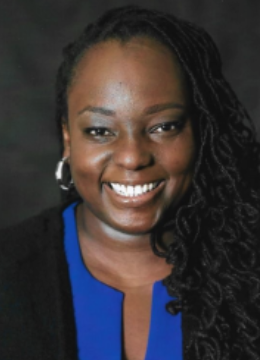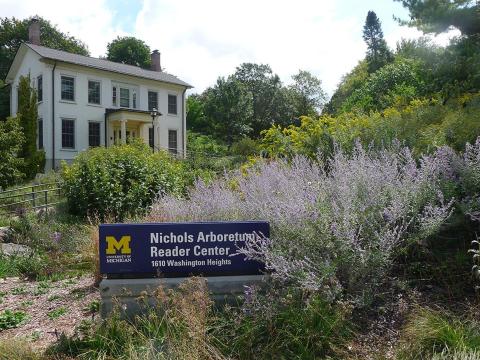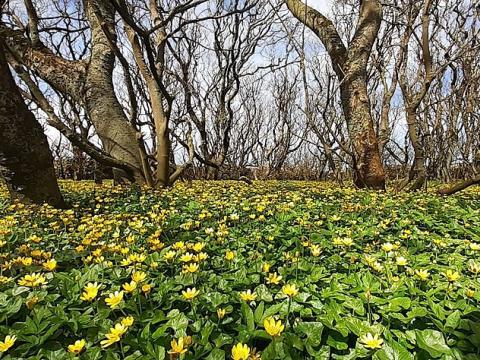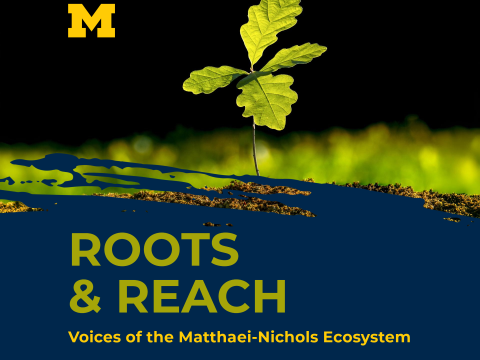
Denisha Jones, Ph.D., J.D.
During our Ways of Play Symposium on April 13th, we will welcome Dr. Denisha Jones as one of our Keynote speakers. We invite you to read more in this interview to discover more about Dr. Jones's journey and her perspectives on education, activism, and the transformative power of play.
Dr. Jones, thank you for joining us at the Ways of Play symposium. Could you begin by sharing how your extensive experience in education has shaped your perspective on the importance of nature-based play in childhood development?
Thank you so much for inviting me to speak at the symposium. As an early childhood educator, I learned the importance of the outdoor environment to support children’s natural development. As a kindergarten teacher in Washington, DC I saw how important it was for young children to spend time outside, exploring nature, observing living things and engaging in nature-based sensory development. Unfortunately, I also saw how difficult it was to make time for nature-based play given the proliferation of academic standards being forced onto young children. The more I spent time studying how play supports learning and development, the more I realized that nature-based play was needed to address the nature and play deficits that children were experiencing in many public preschool and kindergarten programs. Giving children ample time to play indoors is important but children also need time everyday to play outdoors in nature. When we increase access to nature-based play we allow whole-child optimal development to happen naturally.
Your activism has been vital in educational justice movements like Black Lives Matter at School. Can you discuss the intersectionality between advocating for racial justice and the promotion of nature-based play spaces? How do we ensure these spaces are inclusive and reflective of all communities?
Though we have seen an influx in nature-based play preschool programs in the U.S. we know that they do not tend to enroll a large percentage of BIPOC children and families. Thus, we create a racial justice issue when we fail to ensure that access and awareness about nature-based play is only given to white middle middle-class families. Often BIPOC children are perceived as having cultural deficits that lead to academic deficits which leads to an emphasis on rote learning and other developmentally inappropriate practices, for those children. Those children, BIPOC, low-income, marginalized, and disinvested, need the same educational experiences as their wealthy, white, advantaged counterparts. We must recognize how our deficit views further marginalizes racialized children by denying them opportunities and experiences that they are entitled to. For those who care about racial justice and promoting nature-based play spaces, they must create an action plan to ensure that diverse families have knowledge and access to their programs. This includes visiting these communities and connecting to community members to find ways to collaborate and build partnerships.
During your tenure in teacher education, how have you witnessed the concept of play evolving, and what do you believe are the key elements of play that should be preserved or emphasized in future education frameworks?
I think of play as a continuum with no/limited access to play on one end and open unlimited time and space for child-drive play on the other end. I have seen many educators move down the continuum as they awaken to how play is learning and fosters positive development. Most teachers see play as a needed respite from learning and think some time devoted to recess most days is sufficient. Other teachers recognize that play is learning and believe more time spent in play will lead to richer and deeper learning. They advocate for a day filled with play and spontaneous child-driven learning over traditional on-demand learning. My work seeks to help teachers make the shift to play is learning and reorienting their pedagogy to allow for more play and child-driven learning. To make that shift, teachers need to understand that play is learning. It is not a break from learning or a game to make learning more fun. When children play they learn. When children play they develop. If a child was to play all day they would be learning and developing all day. This recognition is a key element that I think must be preserved as we move forward developing pedagogies of play. I also think we need to recognize that play involves risks and that children learn to assess the risk when they are free to play. If we are constantly making choices about play that limits the risk, the children will never learn how to become trusted risk takers. I also think we need to move away from the idea that play is only valuable if an adult is there to narrate the play, ask questions, and ensure that learning happens. That is not play. Guided play and other types of adult-led play are not true play. True play is when children have uninterrupted time to explore open-ended materials. If the adult is talking them through it or asking lots of questions, it’s not play. So to engage in true play, the role of the teacher must change from that of guide to that of facilitator. A facilitator of play, creates environments for play, observers during play, documents learning and development, and provides safety and guidance when needed and requested by the children. Future education frameworks must include changing the role of the teacher to foster an environment of true play that allows learning and development to happen.
Lastly, the Ways of Play symposium seeks to be a springboard for action. What message or insight would you like attendees to take away from your keynote address, particularly as it relates to their role in shaping resilient and equitable environments for play and learning?
I want attendees to understand that though I believe we are open against extreme forces that create boundaries to limit children’s natural development, I also believe that we have the power to resist. Through a commitment to nature-centered true play environments we have the ability to transgress those boundaries and provide the children in our classrooms with what we know they need to thrive. What we often lack is the will, because we have been trained to be fearful of doing what we know is right. I hope my words convince all the attendees to stand firm in their knowledge and commitment to serving all children well and do what they know is right for all children. Play is the way, and together we can save the world, one child at a time.


